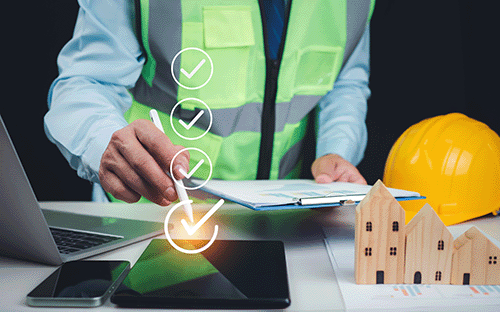Partner with Downstream

Navigating permit requirements for roll-off dumpsters can be confusing, but skipping this step can lead to fines and unexpected delays. Whether you're tackling a home renovation, a large-scale construction project, or a major clean-up, knowing when and how to obtain the right permits is essential. In this guide, we’ll cover everything you need to know about roll-off dumpster permits, from when they are required to how to streamline the process and avoid common pitfalls.

Roll-off dumpsters are essential for construction projects, home renovations, and large clean-ups. However, before renting one, it's crucial to understand the permit requirements that may apply in your area. Failing to obtain the proper permits can result in fines or delays in your project. In this guide, we’ll break down what you need to know about roll-off dumpster permits, including when they are required, how to obtain them, and tips for a smooth permitting process.
Understanding when a permit is necessary can prevent costly mistakes. Permit requirements for roll-off dumpsters vary by location and depend on several factors, including placement and duration. In most cases, permits are required when dumpsters are placed on public property or in areas governed by local ordinances. Ignoring these rules could result in fines or delays that derail your project.
The best way to determine if you need a permit is to check with your local city government or waste management authority. You can often find this information on your city’s website or by contacting the relevant department.

Securing a dumpster permit involves a few simple but important steps. Missing even one can result in costly delays. It’s vital to familiarize yourself with your local municipality’s process and requirements before scheduling delivery. Fortunately, many cities now offer streamlined online services to make the process quick and easy.
Neglecting to obtain a permit can have serious consequences that go beyond just paying a fine. Municipalities enforce dumpster regulations to keep streets safe and organized. Operating without a permit may result in your project being shut down or delayed, which can increase your costs and cause frustration.
To avoid these issues, always verify permit requirements before placing a roll-off dumpster.
A successful dumpster rental experience starts with preparation. Knowing the right questions to ask and the steps to take can save you time and stress. From choosing the correct size to collaborating with a reliable rental company, small details make a big difference in your project's success.
At Downstream, we make the dumpster rental process simple and hassle-free. Our team offers expert guidance on permit requirements and helps you navigate local regulations. With a wide range of dumpster sizes and prompt delivery services, we ensure your project runs smoothly from start to finish.
When you choose Downstream, you benefit from:
Whether you’re working on a small home clean-out or a large commercial project, Downstream is your trusted partner. With our reliable services and customer-first approach, renting a roll-off dumpster has never been easier.
Understanding permit requirements for roll-off dumpsters is essential to avoiding fines and ensuring a smooth project. Always check local regulations, apply for permits if needed, and work with a reliable rental company to make the process easier. If you're ready to rent a dumpster, visit Downstream to get started today!
-min.webp)
Quis nostrud exercitation ullamco laboris nisi ut aliquip ex ea commodo consequat. Duis aute irure dolor in voluptate.
